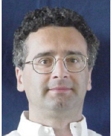
It has been predicted that central
nervous system (CNS) disorder will be the major medical need
of this century. In spite of this recognition and the tremendous
effort and money invested in CNS drug discovery, the outcome
has been very limited over the last decade. Since the underlying
genetic and neuronal abnormalities in most psychiatric and
neurological disorders are largely unknown identifying potential
pharmacological targets is particularly difficult. Furthermore,
clinical evaluation of drug candidates is challenging as objective
measures of symptoms of CNS diseases are frequently lacking.
Therefore, adequate evaluation of the outcome, or early sign
of clinical improvement of pharmacotherapeutic intervention
is also complicated. Although lectures and presentations from
all areas of CNS drug discovery and clinical development are
welcome, a particular emphasis will be put on translational
medicine. The aim will be to address some of the above listed
difficulties related to the discovery of CNS medicines, while
also covering hot topics, such as clinical dose selection
and biomarker strategies.
Mihály Hajós
Pfizer Global Research & Development
Groton, CT, USA

|
| 
| Mihály
Hajós, Pharm.D., Ph.D., is an Associate Research Fellow
at the Neuroscience Department, Pfizer Global Research and
Development, Groton, Connecticut, USA. He graduated from Albert
Szent-Gyorgyi Medical University, Szeged, Hungary, and carried
out his PhD studies at the Nobel Prize winner Arvid Carlsson’s
Pharmacology Department, University of Goteborg, Sweden (1984-1988).
He had various academic appointments, including Assistant
Professor, Department of Physiology, A. Szent-Gyorgyi Medical
University, Szeged, Hungary (1988-1993), Senior Research Fellow,
Department of Clinical Pharmacology, University of Oxford,
UK (1993-1999), and Faculty Member of the Clinical Medicine,
University of Oxford, UK (1995-1999). |
|
Pharma R&D: In 1999, Dr. Hajós
was appointed as Senior Principal Scientist at Department
of Neuroscience, Pharmacia, Kalamazoo, Michigan, USA, and
after the takeover of Pharmacia by Pfizer, he continued his
work at Pfizer Inc. Groton, Connecticut, USA as Associate
Research Fellow. He is interested in the neuropharmacology
of psychiatric disorders, including schizophrenia, anxiety
and attention-deficit/hyperactive disorder. His preclinical
work focuses on the pharmacological and physiological aspects
of neuronal network activities, such as network oscillations,
information processing and complex feedback-loop systems of
the hippocampus and cortex. Applying biomarker strategies,
he also explores how neurophysiological responses to drug
administration translate from preclinical to clinical studies,
presenting opportunities for proof-of-mechanism and proof-of-concept
studies.
Selected Publications:
Barry RJ, Clarke AR, Hajós M, McCarthy R, Selikowitz
M, Bruggemann JM. Acute atomoxetine effects on the EEG of
children with Attention-Deficit/Hyperactivity Disorder. Neuropharmacology.
(in press) 2009.
Hajós M, Hoffmann WE, Kocsis B. Activation of cannabinoid-1
receptors disrupts sensory gating and neuronal oscillation:
relevance to schizophrenia. Biol Psychiatry. 2008 Jun 1;63(11):1075-83.
Javitt DC, Spencer KM, Thaker GK, Winterer G, Hajós
M. Neurophysiological biomarkers for drug development in schizophrenia.
Nat Rev Drug Discov. 2008 Jan;7(1):68-83.
McNaughton N, Kocsis B, Hajós M. Elicited hippocampal
theta rhythm: a screen for anxiolytic and procognitive drugs
through changes in hippocampal function? Behav Pharmacol.
2007 Sep;18(5-6):329-46.
Hajós M. Targeting information-processing deficit
in schizophrenia: a novel approach to psychotherapeutic drug
discovery. Trends Pharmacol Sci. 2006 Jul;27(7):391-8.
|
|



